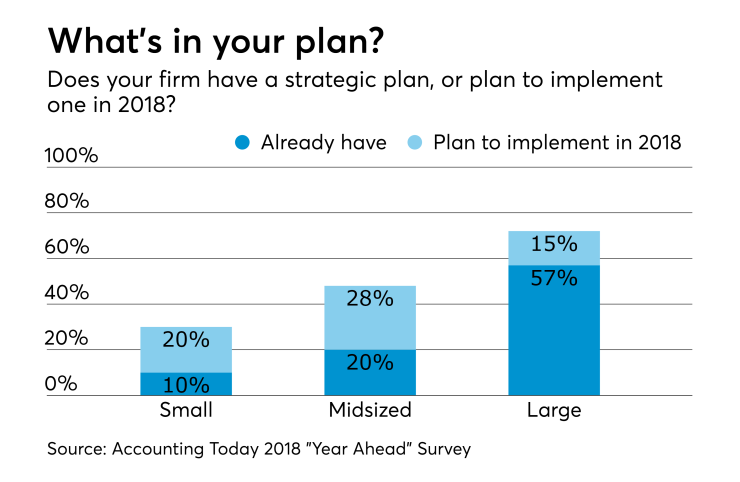"Your time is limited, so don’t waste it living someone else’s life. Don’t be trapped by dogma, which is living with the results of other people’s thinking.”
Steve Jobs knew how to motivate and inspire, which is exactly what he did during his commencement speech to Stanford University grads in 2005. He inspired hundreds of millennial minds with this single, profound statement … and mine as well.
Changing the world one fresh-eyed grad at a time was Job’s purpose that day. He certainly wasn’t looking to change the accounting profession, but after listening to his speech, I was. It made me think about the so-called “incontrovertibly true principles” … the dogma … that weighs down our profession. The dogma that keeps us thinking and working the way it’s always been done — simply because it’s the way it’s always been done. Our incontrovertibly true principles are that we must work long hours; view ourselves as task-oriented technicians; that it’s all about billable hours and the time we spend in the office; that there is no room for creativity and innovation. This is the dogma of our profession … does it feel familiar? Does it resonate that you are living the results of other people’s thinking?
I made a conscious choice years ago to subvert some of the “true principles” I had been raised to believe. The habits and expectations that have been handed down from generation to generation simply don’t ring true anymore, and are soul-crushing obstacles to building a firm for the modern age — one that allows you to live the life you want and deserve.
My “Better Every Day” column is the result of my life’s work to both transform my own firm into a modern, thriving business where creativity and culture reign, and my passion to help other firms do the same. We live in an era of great opportunity, where technology has leveled the playing field, geography is no longer a barrier, and client advisory opportunities are endless. You no longer have to live with the results of other’s thinking. The choice is yours to ditch the dogma and do things your way. Whether this means serving clients virtually, building out a remote staff, embracing an enjoyable work schedule, moving into monthly business advisory services and reducing the amount of once-a-year tax engagements … the fact is that it’s all doable, and the choice is yours.
Where do you start?
Moving out of old habits and transforming your firm is no small task. It won’t happen overnight, but it can begin immediately —one task at a time. It’s about getting better every day, and that means implementing change in manageable, incremental doses.
So, where do you start? What worked for me was first changing the way I thought about myself, my business … my overall existence as a human. And like with most, there was a book that changed the course of everything for me. Near the beginning of my career, I moonlighted as a Covey facilitator, educating groups of professionals on the Seven Habits. It was Stephen Covey’s book, “The Seven Habits of Highly Effective People,” and more specifically, Habits 1, 2 and 3, that inspired me to change both personally and professionally. It taught me the importance of getting better every day. Covey’s first three habits form what he defines as your “personal victory.” And what better place to start than with a victory?
Habit 1: Be proactive. Simply translated, you have a choice. You have the power to write your own story. Covey teaches that there’s a space between stimulus and response — where in that moment you get to choose your response to whatever stimulus is coming at you. To relate this to the accounting profession, consider that it’s tax season and a potential new tax prospect is knocking at your door. It’s in this moment you get to decide how you respond. Do you accept anyone who walks through the door, or do you carefully vet the prospect to determine the potential of being a long-term, ideal client? Being proactive about building my business with ideal clients — that is, those who were both a good fit for my business model and I also enjoyed serving — was a whole new way of thinking for me.
Habit 2: Begin with the end in mind. It’s likely that you’ve heard this before. It’s a fairly well-known and applied concept in business. The goal of Habit 2 is to identify where you want to end up. That ultimate destination. Do you want a business that supports the life you want to live? That is, one that does not rely on you to operate every day … one where you and your staff can work from wherever, whenever? A business where tax season is not the key driver of your life for six months of the year and tax work is not your core offering? A business composed of ideal clients — those who represent monthly recurring, long-term advisory engagements and you like to serve?
Recall the new tax prospect example from above. The action you take with this prospect should be driven by Habit 2. What is it you want out of your business — your end goal? If your vision is to have a life where you can be at home evenings and weekends, not held hostage by the chaos of tax season, then what you decide between the space of stimulus and response will drive your long-term outcomes. This is an oversimplification, but you get the idea.

Habit 3: Put first things first. Once you realize that each decision is your choice and you’ve done the work to define your end, you are ready to put first things first to get to where you want to be. Simply put: What tasks should shoot to the top of your list? For me, putting first things first meant building a firm made up of ideal clients who follow our defined (and non-negotiable) business model. This was the only way to operate efficiently and profitably, and ultimately grow. It’s a matter of deciding what your first things are and then making them happen.
Developing great habits is the foundation for getting better every day. Without a framework for improvement, it’s difficult to see what changes are required and where to begin. Starting with this trio of habits will help you envision your roadmap for change and keep you accountable to act on it.
The fact is, we are living in an era of epic change, from technology innovations to clients and staff expectations on how they want to work — remote, on-demand, modern, from any device. And with great change comes both opportunity and disruption. By implementing change now, by making your business better every day, you can quell the disruption and harness the opportunities that await. Getting better every day helps you build a modern firm — one that takes advantage of exciting new technology to operate at peak efficiency, that allows you to jump on the small-business advisory services bandwagon, and minimizes the drudgery of tax season.
There’s never been a better time to shed the dogma of the past … to avoid living with the results of other people’s thinking. It’s time to get to something better, to get better every day. It really is your choice!
Subscribe to Darren's "Better Every Day Podcast" on iTunes or listen on his website at





